
Hong Kong policy address 2023: what will John Lee propose to bring bounce back to the economy? City needs to shake off sense of pessimism, analysts say
- Sluggish economy, youth apathy, geopolitics weigh on city leader as he prepares for annual address
- Struggling business sector wants more help, while many urge Lee to scrap property cooling measures
His first address a year ago was against the backdrop of a city reopening its borders to quarantine-free travel for overseas visitors for the first time in three years.
Lee rolled out a string of ambitious initiatives to woo big enterprises and top talent to a city feeling the effects of a brain drain triggered by harsh Covid-19 restrictions and Beijing’s imposition of the national security law.
A year later, Lee can rightly claim some success for his efforts.
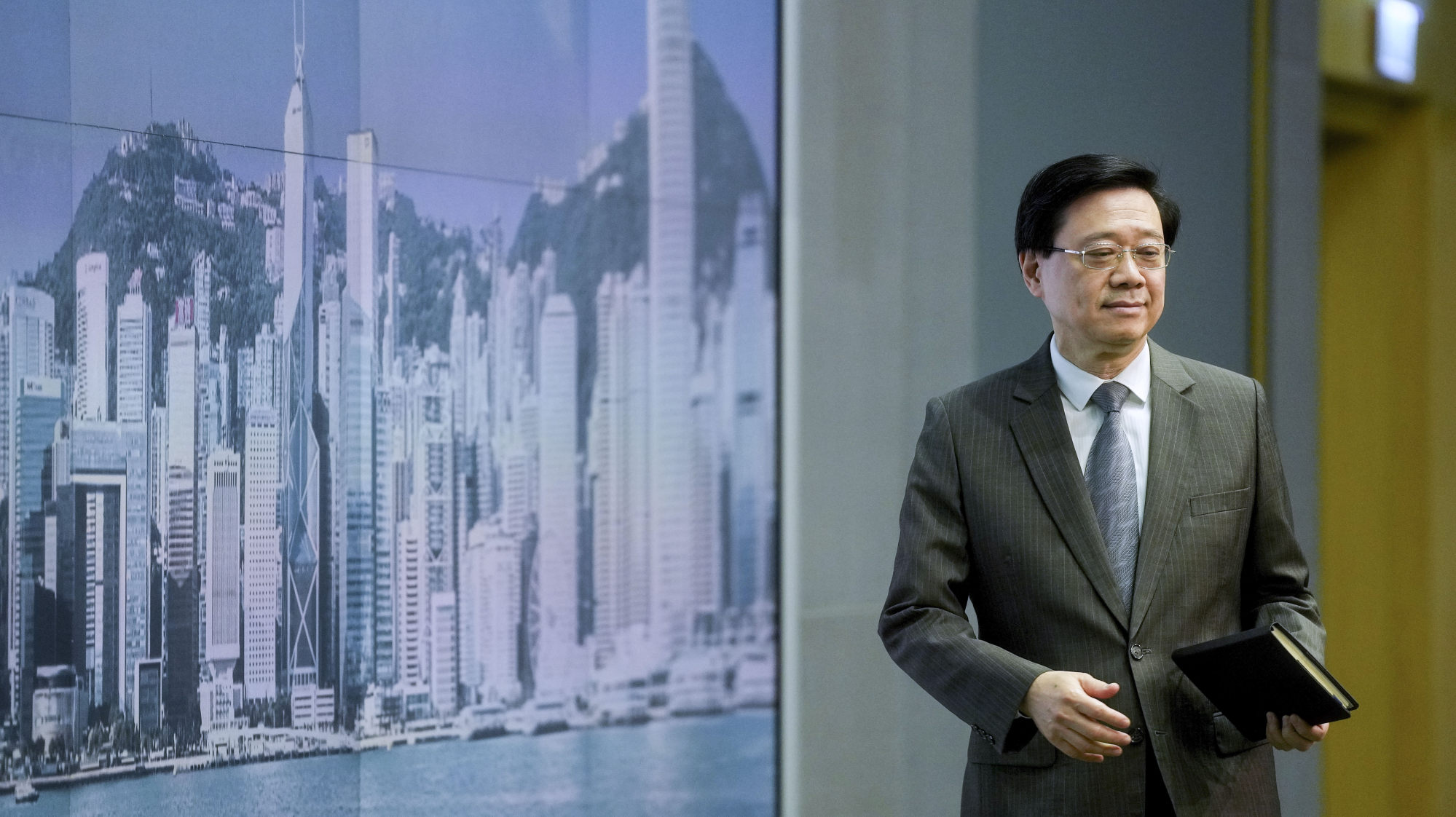
A set of talent programmes, including the Top Talent Pass scheme for well-educated top earners, has drawn more than 160,000 applications with around 100,000 approved.
A new office to bring in “key enterprises” unveiled more than 30 partnership agreements early this month, with Lee calling the achievement “tremendously encouraging”.
However, the city leader’s second year in office has also been marked by anaemic economic recovery amid the slowdown in mainland China, weak global demand and ongoing geopolitical tensions between Beijing and Washington.
Except for 2021, Hong Kong’s economy shrank in 2019, 2020 and last year. Even if this year’s real gross domestic product growth met the government’s forecast of 4 to 5 per cent, the full-year economic output of 2023 would still fall short of that in 2018, said government economist Adolph Leung Wing-sing.
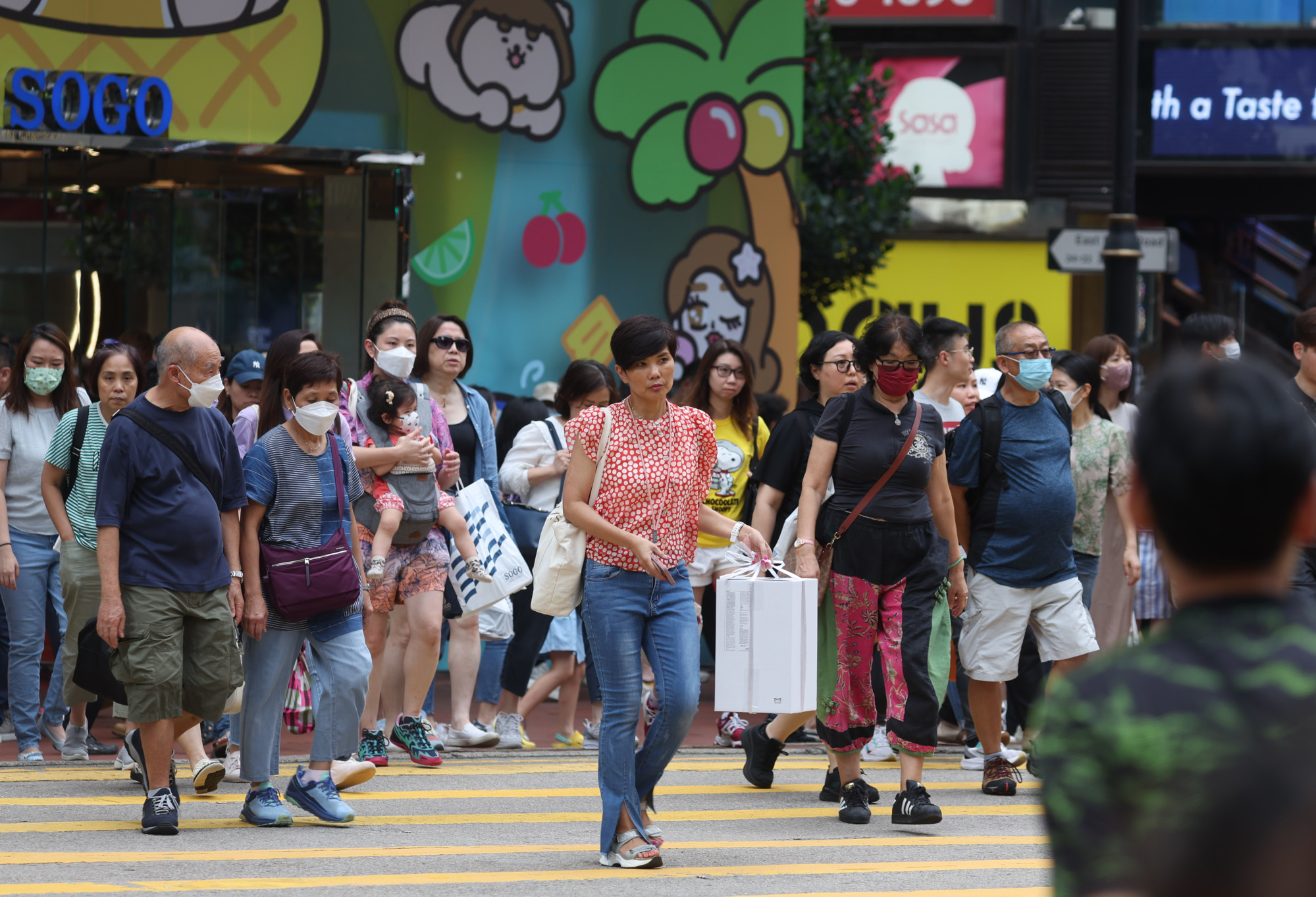
What can Lee offer on October 25 to shake off some of the pessimism, press on with his policies and raise Hongkongers’ sense that the city is on the right track?
Political scientist Sonny Lo Shiu-hing said that with the slow recovery since the city reopened to the world, Hongkongers’ expectations of the chief executive had changed compared with this time last year.
“Back then it was about meeting Beijing’s aspirations of making Hong Kong more stable, it was about national security and social stability, and he’s done that. Now it’s about advancing to prosperity, and he has to do more,” he said.
While the pressure mounts on Lee to act, the public coffers at his disposal have been depleting. The government recorded a deficit of HK$139.8 billion (US$17.9 billion) in the 2022-23 financial year, with a further deficit of HK$54.4 billion anticipated for the current one.
The fiscal reserves stood at HK$698.6 billion as of August, nearly two-fifths lower than four years ago.

Lau Siu-kai, a consultant at the semi-official think tank, the Chinese Association of Hong Kong and Macau Studies, said Lee had a tough job as economic hardship would continue to eat into government revenues.
Urging the city leader to “bite the bullet”, he said the priorities should be policies and projects geared towards long-term development and people desperately in need.
“Some guidelines must be reviewed to reflect the government’s new priorities,” he said. “Some overly generous measures might have to be reconsidered, such as the extension of the HK$2 fare subsidy to people aged between 60 and 64.”
Given the “grave economic situation in the coming years”, the government would have to tap more into community resources to achieve public ends, he said.
‘Time to scrap property curbs’
Hong Kong’s business sector, hit by sluggish global demand, will also be looking to the city leader for more support.
A business chamber representing manufacturers hoped authorities would provide more support for local small and medium enterprises (SMEs) to weather the global economic uncertainties.
“They should prioritise assistance to SMEs in exploring markets, both locally and in emerging overseas markets,” said Allen Shi Lop-tak, president of the Chinese Manufacturers’ Association of Hong Kong.
He hoped Lee’s administration could also help small businesses adopt technology to improve productivity and competitiveness.
Exports and imports in August recorded year-on-year declines of 3.7 per cent and 0.3 per cent respectively, according to official data.
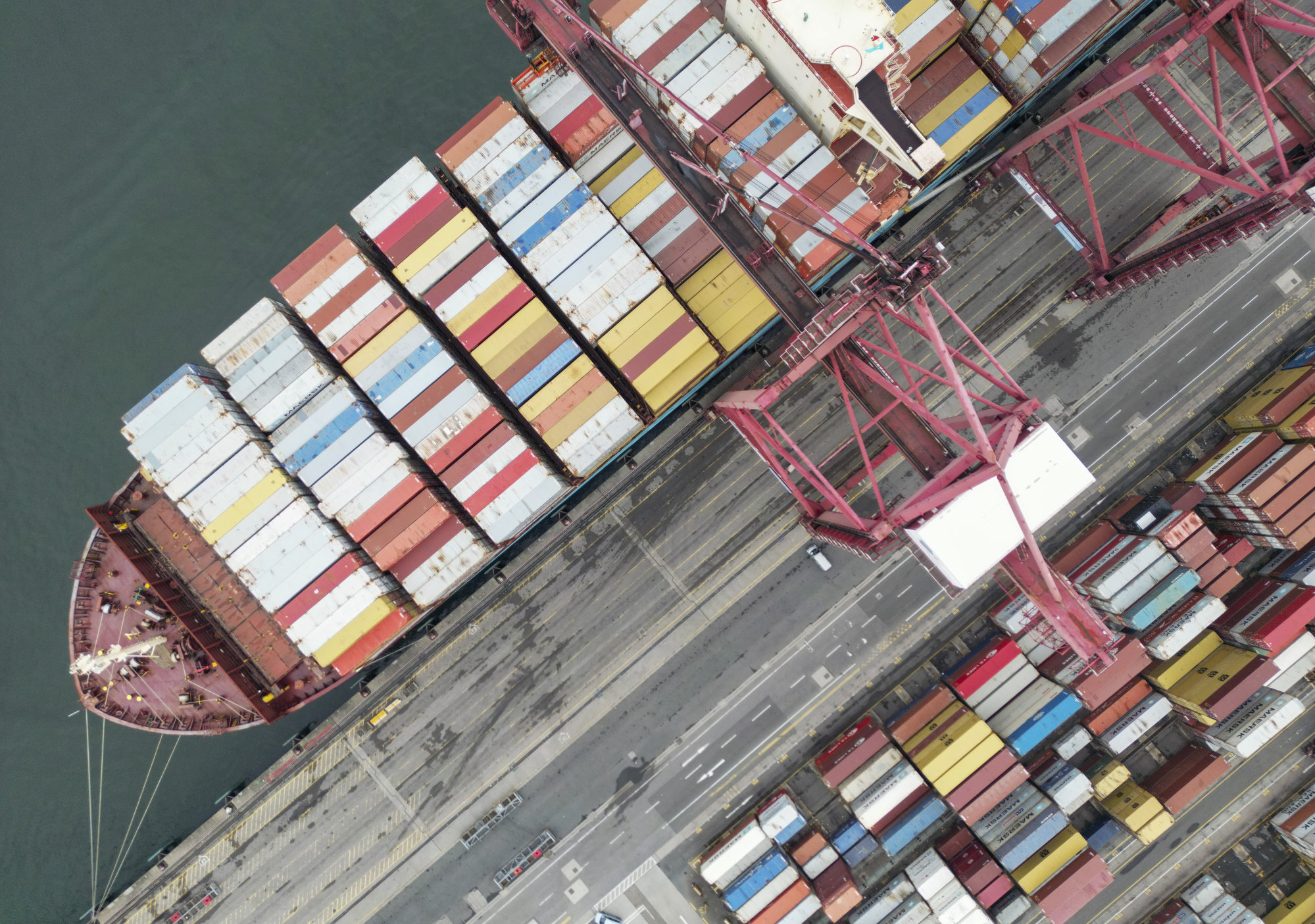
Economist Andy Kwan Cheuk-chiu, director of the ACE Centre for Business and Economic Research, said: “Hong Kong is a re-exporter of goods and when global trade falls, there’s nothing we can do.”
Benefits from the government’s big business partnerships – including the claimed creation of 10,000 jobs – would also not materialise any time soon, he added.
“But Hong Kong can control what it can control. Hong Kong is an exporter of services, and tourists are the recipients of our services,” he said, suggesting that the government draw up an intensive calendar of festive events to draw visitors and promote spending in the year ahead.
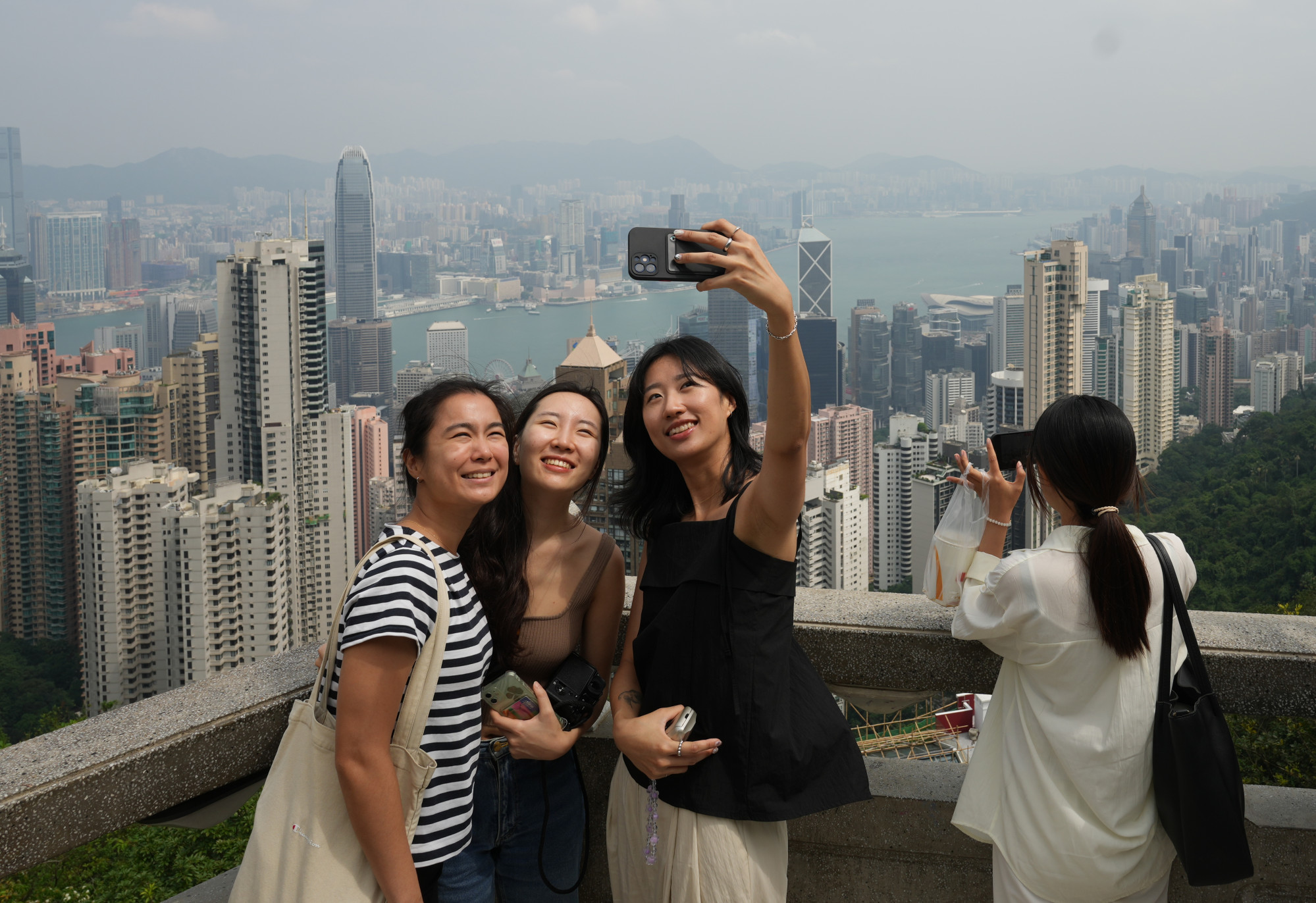
Like several lawmakers and business leaders, Kwan hoped Lee would scrap various property taxes introduced by previous administrations to discourage investors and non-residents from snapping up residential units.
Home prices have been on a downward trend since 2021, according to an index compiled by local real estate agency Centaline.
Lawmaker and veteran urban planner Andrew Lam Siu-lo cautioned that if home prices rebounded as a result of curbs being lifted, it might upset many residents, especially those who had been waiting to buy a home.
An NGO focused on land issues worried that if the city leader heeded those calls, he would miss an opportunity to tackle the affordability of homes in a city notorious for expensive, small living spaces.
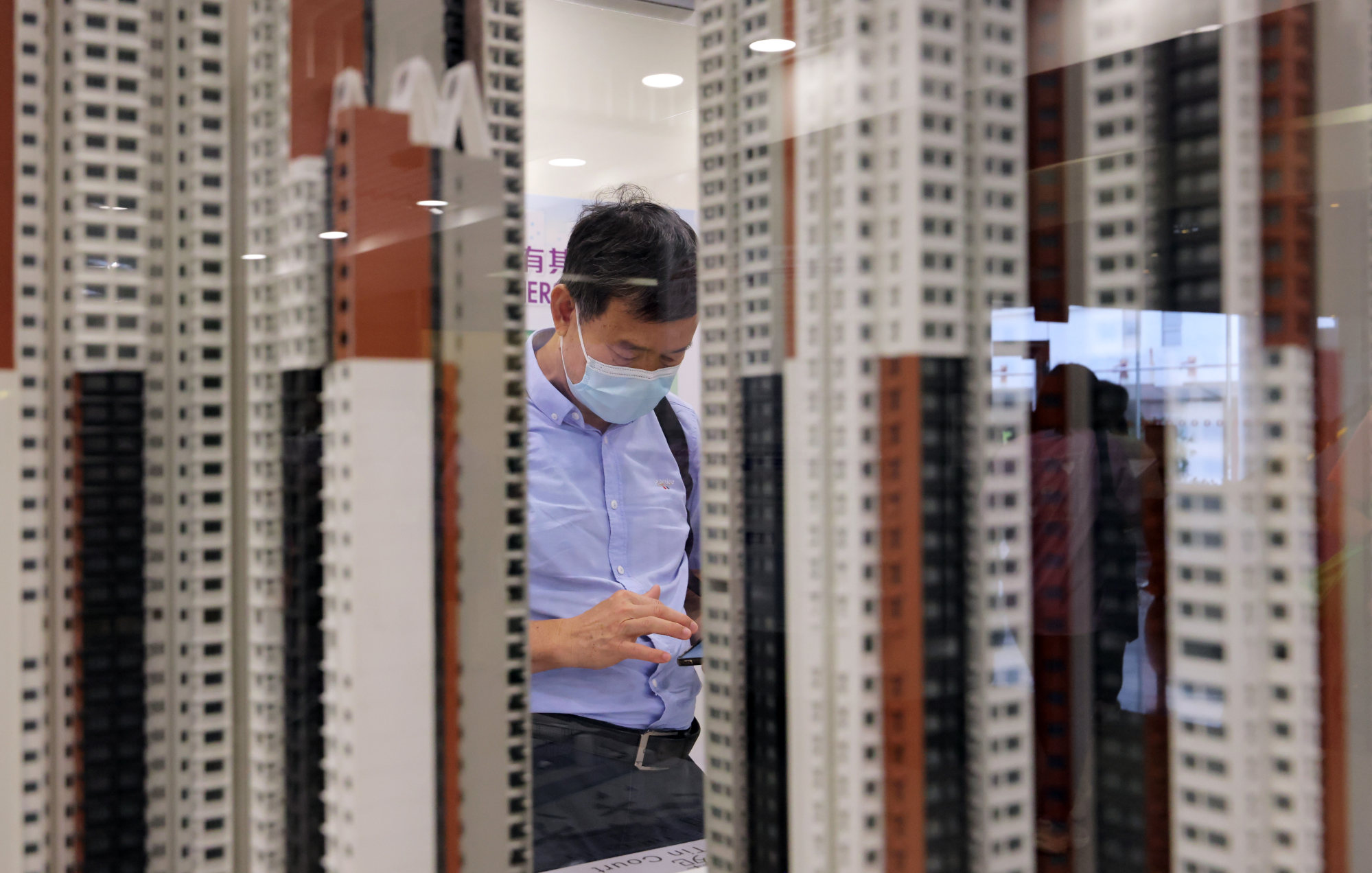
The Liber Research Community opposed the relaxation of any cooling measures in a property market described as the most unaffordable in the world.
It cited the UBS Global Real Estate Bubble Index released in September, which said a skilled worker in Hong Kong had to work 25 years to buy a 650 sq ft home, longer than in all other cities surveyed. The time for a worker in Tokyo, in second place, was 17 years.
“The suggestion to relax cooling measures can exacerbate the unaffordability of housing which the government has claimed to tackle. It is inappropriate for the government to let property developers take a ‘free ride’ at the expense of citizens’ well-being,” Liber member Brian Wong Shiu-hung said.
The NGO has also advocated making better use of existing brownfields for homes and opposed any large-scale urban development when population growth in Hong Kong was unlikely to be sustained.
Wong conceded however that it was unrealistic to anticipate a fundamental fix of the home affordability issue in Lee’s policy address, as he did not expect the government to abandon its dependence on land sales for public revenues.
Land-related revenues have been a lifeline for the government’s balance sheet. In the past three financial years, land sales and related proceeds made up 11.8 to 20.6 per cent of all government revenues.
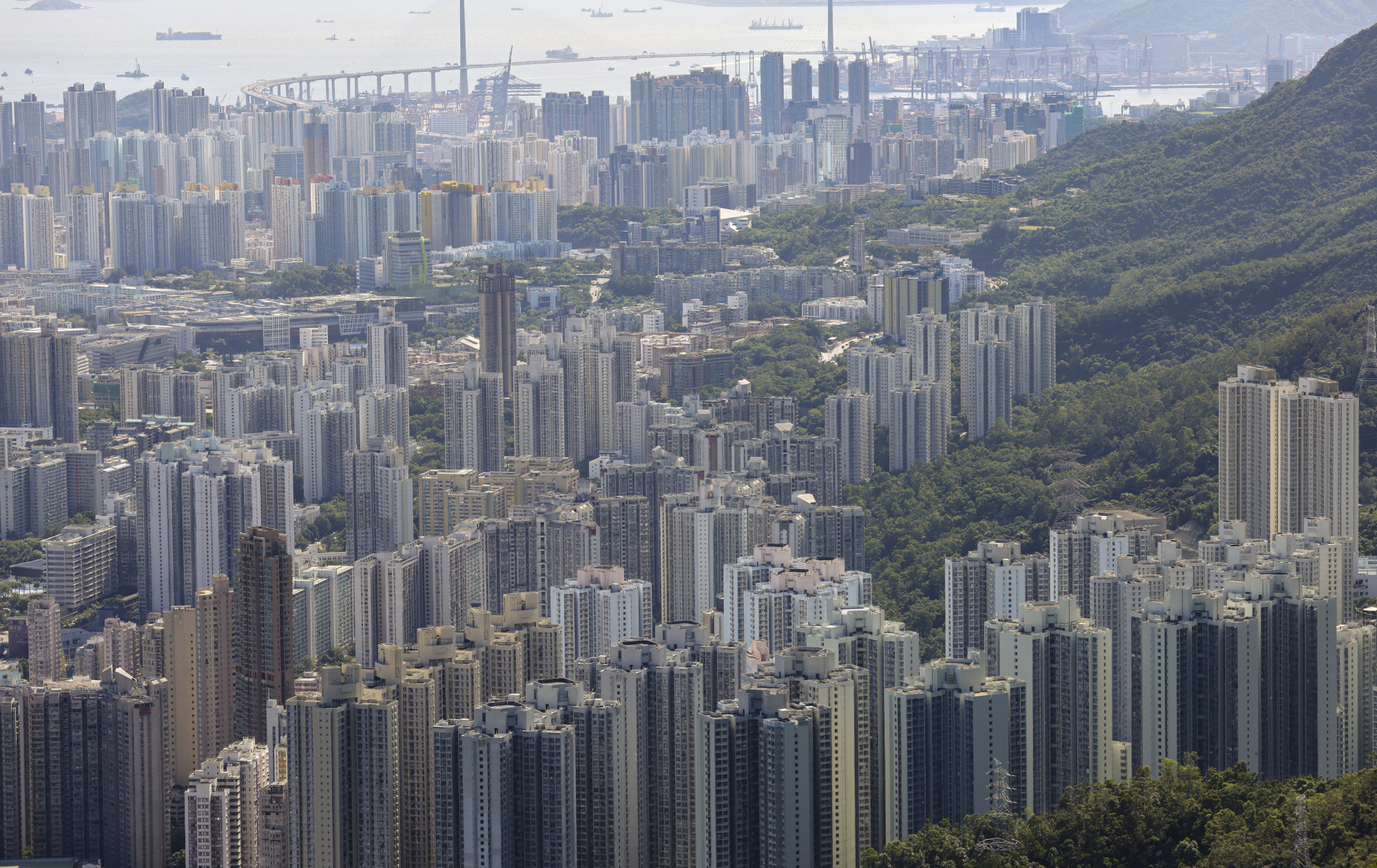
‘Keep Article 23 on 2024 agenda’
A 2003 attempt to introduce the law was shelved after half a million people took to the streets to protest.
Article 23 requires Hong Kong to enact its own legislation to outlaw theft of state secrets, and ban foreign political organisations or bodies from conducting political activities in the city and local political organisations or bodies from establishing ties with foreign political organisations or bodies.

Veteran political analyst Lau said he expected Lee to follow through with a plan to complete the local legislation for Article 23 before the end of 2024 to cope with national security threats from the West, particularly in misinformation, espionage, cyberwar and collusion with local hostile forces.
On the other hand, he pointed out it would be “desirable” to reduce tensions in society, as the threats to national security in Hong Kong were becoming manageable and could be dealt with in a low-key manner.
“A less tense political atmosphere in Hong Kong will weaken the ability of Western politicians and media to bad-mouth Hong Kong,” he said.
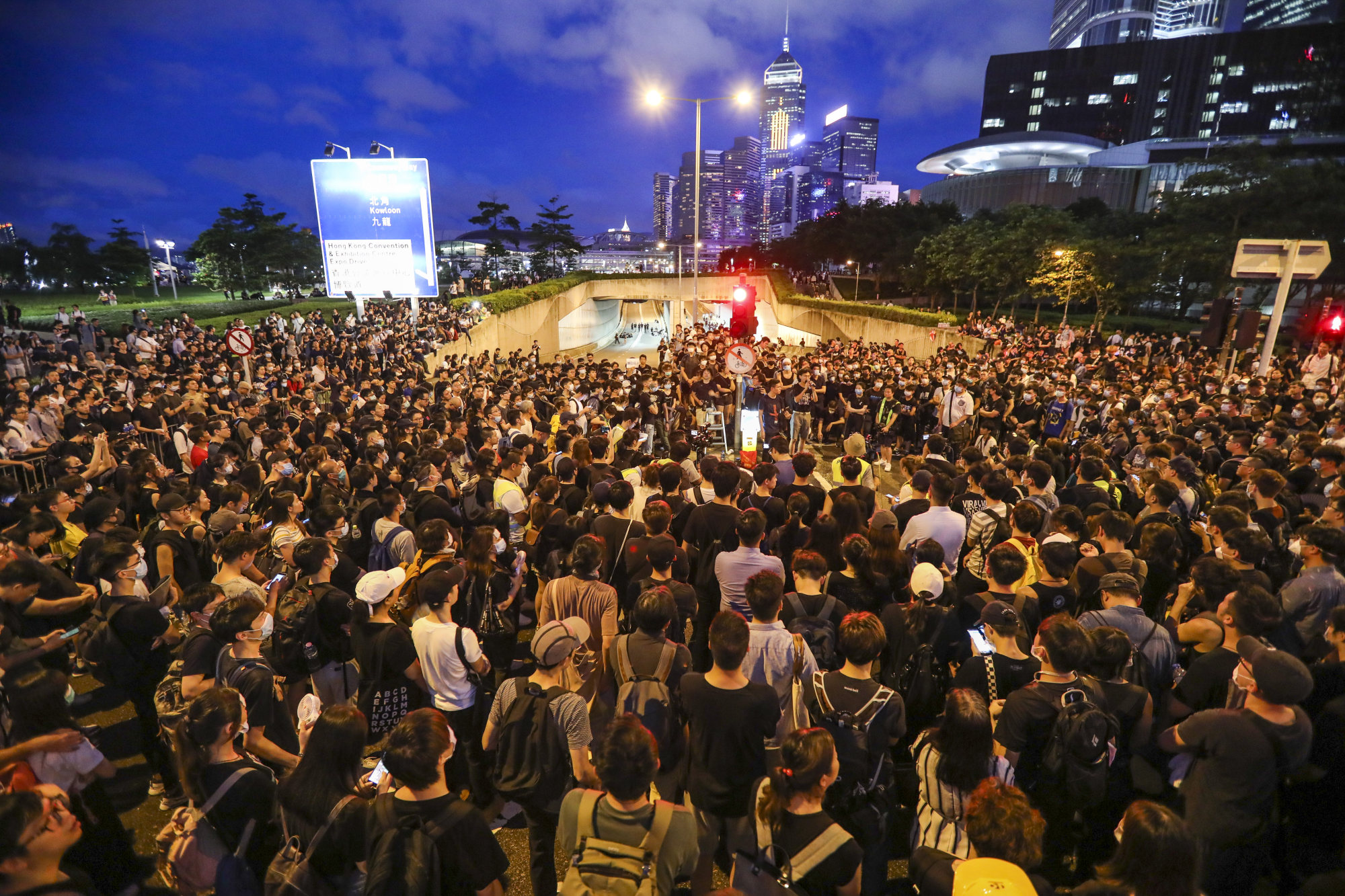
Democratic Party chairman Lo Kin-hei observed that many people were not only feeling disempowered by the “patriots-only” political reality, but also losing confidence in the city’s economic prowess as it had been caught in the geopolitical dynamics between the United States and China.
“In the past, the most precious thing about Hong Kong was its ability to manoeuvre both ways in the narrow gaps among big powers. Now this trick is no more, and the authorities don’t seem to know what to do about it,” Lo said.
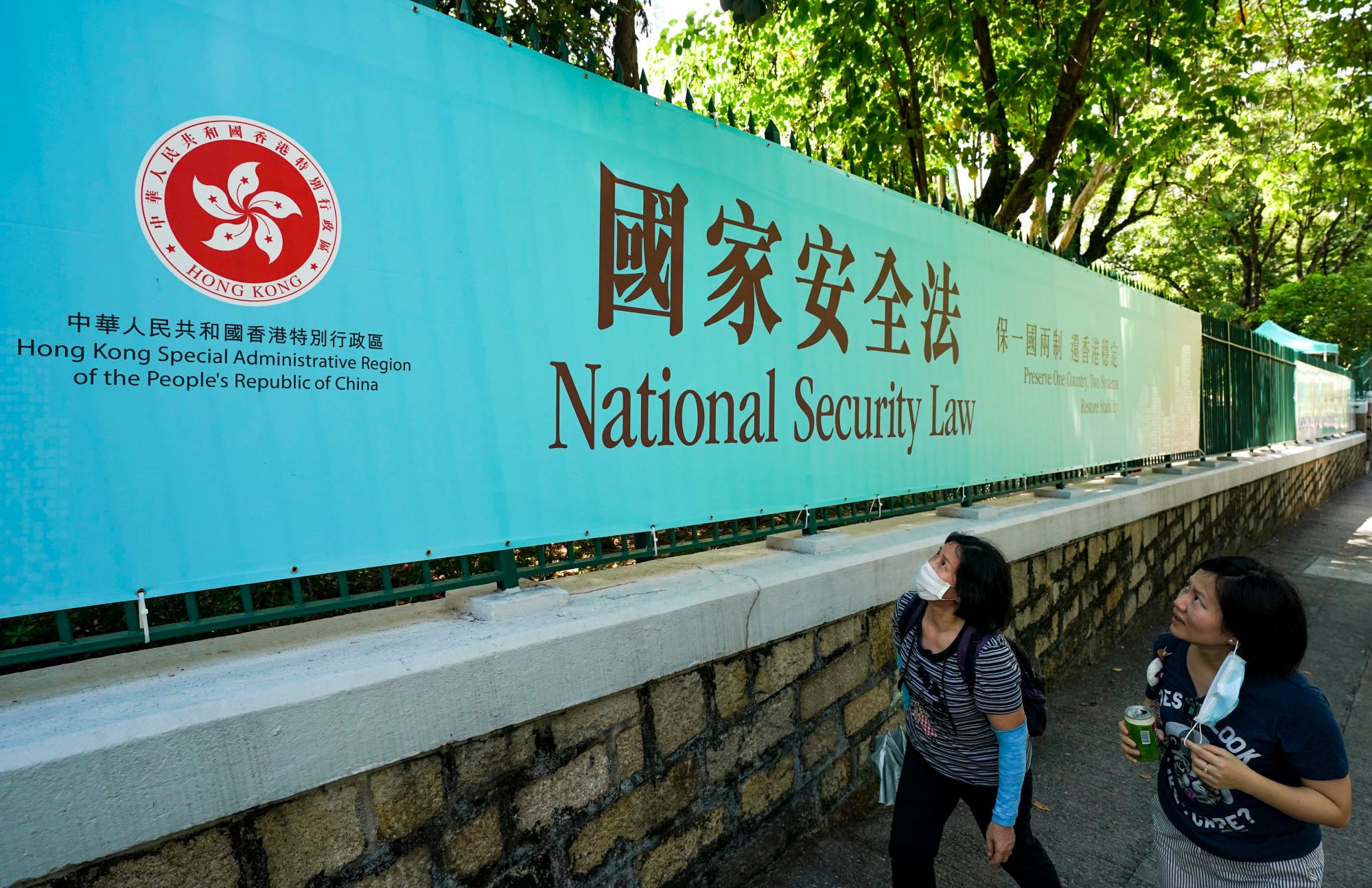
‘Young people can’t relate to leaders’
Last year city leader Lee also dedicated part of his speech to youth, in a section titled “Hong Kong will Prosper Only When its Young People Thrive.”
But a survey released by Chinese University in September showed deep political apathy among residents, with about three-fifths of the 711 interviewees aged 18 or above suggesting they were not interested in politics.
The voter register released in August showed only 26,129 voters aged 18 to 20, when official data as of the end of June showed there were 162,900 residents in that age group.
Chan Wai-keung, a political scientist at Polytechnic University, said young people found it hard to relate to those in political institutions such as the Legislative Council or district councils who could voice their concerns effectively to the government.
“Young people’s political apathy stems from their distrust in the current government, which offers few opportunities for them to find a representative or become one themselves,” he said.
Chan also observed that many positions on advisory bodies meant for young people under a youth self-recommendation scheme were seen as having been filled by those linked to the wealthy or the establishment camp.
The 20 bodies include those related to promoting the Basic Law, child welfare, manpower planning, rehabilitation and the design of postal stamps.
He said the persistent perception from such appointments was that the government was still reluctant to cross the political divide and reach out to more young people.
“That effort should not be done only for pro-establishment youth, but also those who stand in the middle or lean slightly towards the opposition,” he added.
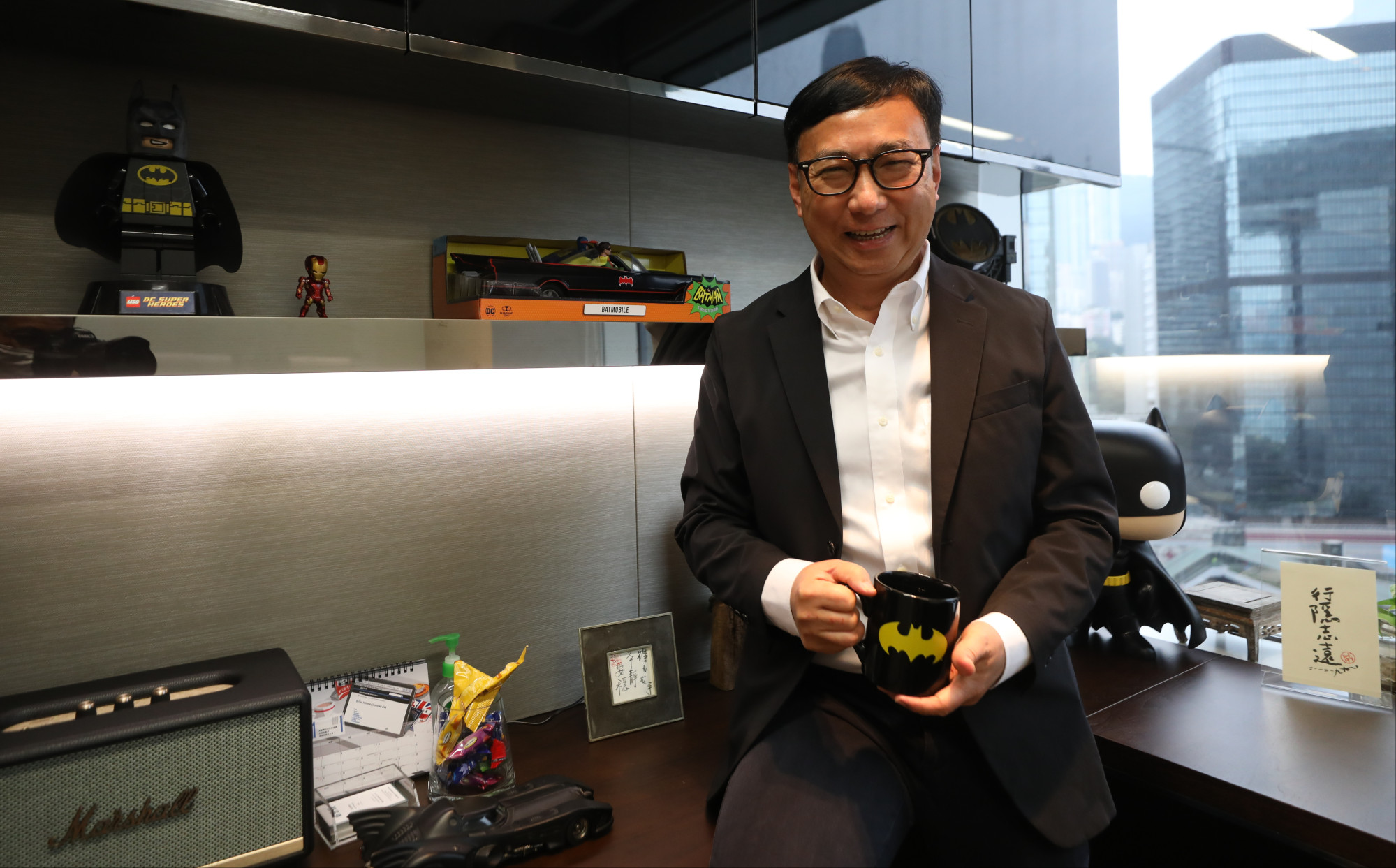
Centrist legislator Tik Chi-yuen claimed social tensions had also contributed to younger couples’ sense of uncertainty about the future and hence reluctance to have babies.
The number of newborns fell by nearly two-fifths from 52,900 in 2019 to 32,500 last year. The total fertility rate, the number of children a woman is expected to have over her lifetime, sank to 0.8 last year, the lowest in the world.
But Tik, a trained social worker, said: “Some choose not to have children because they have no confidence in the social outlook or the government.”
He said the government would have to find ways to “communicate with the community and convince the people that it is sincere in pursuing reconciliation”.
Can Lee deliver all that and more come October 25? Residents are watching.





